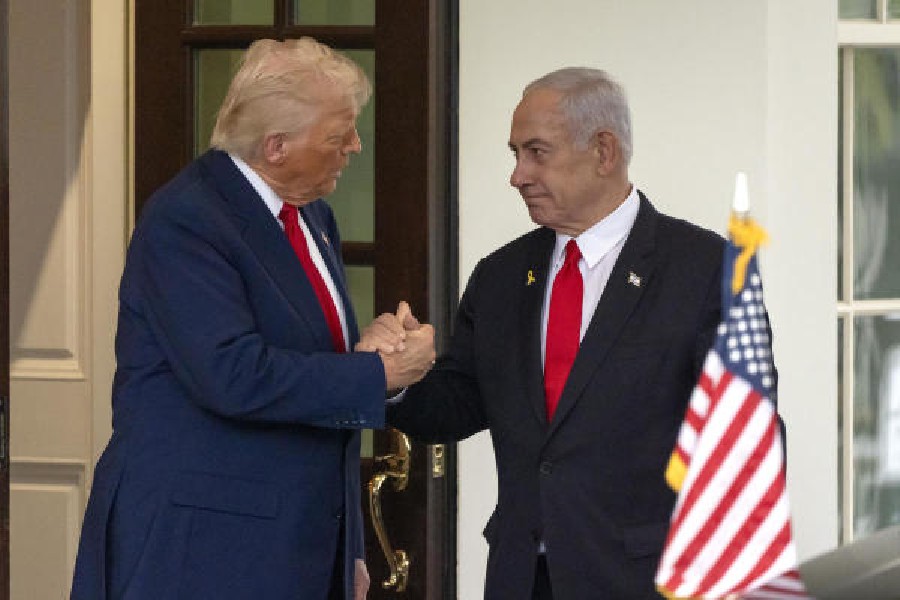President Donald Trump said on Monday that the US would engage in “direct” negotiations with Iran next Saturday in a last-ditch effort to rein in the country’s nuclear programme, saying Tehran would be “in great danger” if it failed to reach an accord.
If direct talks take place, they would be the first official face-to-face negotiations between the two countries since Trump abandoned the Obama-era nuclear accord seven years ago. They would also come at a perilous moment, as Iran has lost the air defences around its key nuclear sites because of precise Israeli strikes last October. And Iran can no longer rely on its proxy forces in West Asia — Hamas, Hezbollah and the now-ousted Assad government in Syria — to threaten Israel with retaliation.
In a social media post, Iran’s foreign minister, Abbas Araghchi, confirmed talks would take place on Saturday in Oman, but he said that they would be indirect, meaning intermediaries would work with the two sides. “It is as much an opportunity as it is a test. The ball is in America’s court,” Araghchi said.
On the order of its supreme leader, Ayatollah Ali Khamenei, Iran has refused to sit down with American officials in direct nuclear negotiations since Trump pulled out of the last accord. After Trump spoke on Monday, however, three Iranian officials said Ayatollah Khamenei had shifted his position to potentially allow direct talks.
The officials said that if Saturday’s indirect talks are respectful and productive, then direct talks may happen. The officials asked not to be named because they were not authorized to speak publicly.
Still, Iran is almost certain to resist dismantling its entire nuclear infrastructure, which has given it a “threshold” capability to make the fuel for a bomb in a matter of weeks — and perhaps a full weapon in months. Many Iranians have begun to talk openly about the need for the country to build a weapon since it has proved fairly defenceless in a series of missile exchanges with Israel.
Sitting beside Trump on Monday during a visit to the US, Israel’s Prime Minister, Benjamin Netanyahu, insisted that any resulting deal must follow what he called the “Libya model”, meaning that Iran would have to dismantle and ship out of the country its entire nuclear infrastructure. But much of Libya’s nuclear enrichment equipment had never been uncrated before it was turned over to the US in 2003; Iran’s nuclear infrastructure has been operating for decades.
Netanyahu was strangely quiet during a lengthy question-and-answer session with reporters, a sharp contrast with his last visit to Washington, two months ago. After a few introductory remarks, he was largely a spectator as Trump railed against European nations he said had “screwed” the US and threatened even more punishing tariffs against China unless it reversed its threat of retaliatory tariffs by Tuesday.
Netanyahu left the Oval Office without a public commitment from Trump to wipe out the 17 per cent tariff he had placed on Israel, one of America’s closest allies.











